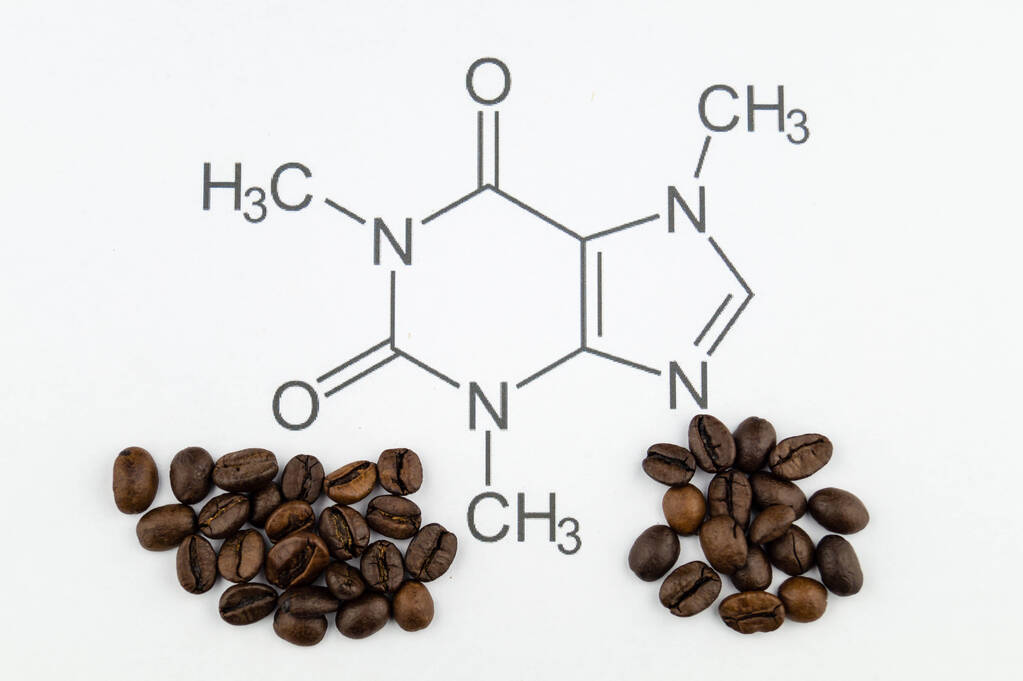Caffeine: Nootropic Explained
September 13, 2023

Welcome, dear reader, to the fascinating world of nootropics! Today, we're going to delve into the depths of one of the most widely consumed nootropics on the planet - caffeine. Yes, that's right! That magical substance that helps you shake off the morning grogginess and powers you through your day. But what exactly is caffeine, and how does it work as a nootropic? Buckle up, because we're about to find out!
Now, before we dive into the nitty-gritty, let's clarify what a nootropic is. In the simplest terms, a nootropic is a substance that enhances cognitive function, particularly executive functions like memory, creativity, or motivation. And caffeine, my friend, is a prime example of a nootropic. But enough of the preamble, let's get to the good stuff!

What is Caffeine?
Let's start with the basics. Caffeine is a natural stimulant most commonly found in tea, coffee, and cacao plants. It works by stimulating the brain and central nervous system, helping you stay alert and preventing the onset of tiredness. But wait, there's more to it than just keeping you awake!
Chemically speaking, caffeine is an alkaloid compound that is found in various seeds, leaves, and fruits of some plants. Its primary benefit is as a central nervous system stimulant, increasing alertness and warding off drowsiness. It achieves this by blocking the neurotransmitter adenosine's receptors in the brain and other areas of the body, leading to increased neuron firing. This, in turn, leads to heightened stimulation of the adrenal glands that produce more adrenaline, further contributing to increased alertness and reduced fatigue.
The History of Caffeine
Caffeine has been consumed by humans for thousands of years. The first known use of caffeine was in the 9th century, in the highlands of Ethiopia. Legend has it that a shepherd noticed his goats were unusually energetic after eating berries from a certain tree - the coffee tree, as we now know it. The shepherd shared this discovery with local monks, who found that a drink made from these berries helped them stay awake during long hours of prayer. And thus, the use of caffeine was born!
Since then, caffeine has spread across the world, becoming a staple in many cultures. Whether it's a cup of tea in England, a shot of espresso in Italy, or a can of energy drink in the United States, caffeine is consumed in a multitude of forms. It's estimated that 80% of the world's population consumes a caffeinated product every day. Now that's a lot of caffeine!
How Does Caffeine Work as a Nootropic?
Now that we've covered what caffeine is and its history, let's dive into how it works as a nootropic. As we mentioned earlier, caffeine primarily works by blocking the adenosine receptors in your brain. Adenosine is a neurotransmitter that promotes sleep and relaxation, and by blocking its receptors, caffeine promotes alertness and wakefulness. But it's not just about keeping you awake - caffeine also has several other effects that can enhance cognitive function.
Firstly, by blocking adenosine receptors, caffeine allows the neurotransmitters dopamine and glutamate to function more effectively. Dopamine is associated with the pleasure system of the brain, enhancing feelings of pleasure and motivation. Glutamate is the most abundant neurotransmitter in the nervous system and is involved in cognitive functions like learning and memory. So, by allowing these neurotransmitters to function more effectively, caffeine can enhance several aspects of cognitive function.
The Effects of Caffeine on Memory
Research has shown that caffeine can enhance certain types of memory. For instance, caffeine has been found to improve performance on tasks that require working memory. Working memory is the type of memory we use to hold and manipulate information over short periods, like when you're trying to remember a phone number or follow directions.
Additionally, caffeine may also enhance long-term memory. A study published in the journal Nature Neuroscience found that participants who consumed caffeine after studying a series of images were better at remembering these images the next day, compared to participants who did not consume caffeine. However, it's important to note that the effects of caffeine on memory can vary depending on factors like the individual's tolerance to caffeine and the amount consumed.
The Effects of Caffeine on Mood and Motivation
Caffeine can also have a significant effect on mood and motivation. As we mentioned earlier, caffeine allows the neurotransmitter dopamine to function more effectively. Dopamine is associated with the pleasure system of the brain, and by enhancing its function, caffeine can improve mood and motivation. This is why you might find yourself feeling happier and more motivated after a cup of coffee!
Moreover, caffeine can also increase the production of serotonin, another neurotransmitter that plays a key role in mood regulation. Increased levels of serotonin can lead to improved mood and increased feelings of well-being. So, next time you're feeling down, a cup of coffee might just be the pick-me-up you need!
The Side Effects of Caffeine
While caffeine can have numerous benefits as a nootropic, it's also important to be aware of its potential side effects. Like any substance, caffeine can have negative effects if consumed in excess. Some of the most common side effects of caffeine include restlessness, insomnia, rapid heartbeat, and digestive issues. Additionally, consuming large amounts of caffeine can lead to a physical dependence, leading to withdrawal symptoms like headaches and irritability when caffeine consumption is reduced or stopped.
Furthermore, it's important to note that the effects of caffeine can vary greatly from person to person. Factors like age, body weight, and tolerance can all affect how an individual responds to caffeine. Therefore, while caffeine can be a powerful nootropic, it's important to consume it responsibly and be aware of your own body's response.
How to Mitigate the Side Effects of Caffeine
If you're experiencing negative side effects from caffeine, there are several strategies you can use to mitigate these effects. One of the most effective strategies is to simply reduce your caffeine intake. This can be done gradually to avoid withdrawal symptoms. Additionally, it can be helpful to avoid consuming caffeine late in the day, as this can interfere with sleep.
Another strategy is to pair caffeine with other substances that can mitigate its negative effects. For instance, the amino acid L-theanine, which is found in tea, has been found to reduce the jitteriness and rapid heartbeat often associated with caffeine consumption. Additionally, staying hydrated and maintaining a healthy diet can also help to mitigate the side effects of caffeine.

Conclusion
There you have it, dear reader - a comprehensive guide to caffeine as a nootropic! From its history and how it works, to its effects on memory, mood, and motivation, and even its potential side effects, we've covered it all. So next time you're sipping on your morning coffee or afternoon tea, take a moment to appreciate the complex and fascinating substance that is caffeine. And remember, while caffeine can be a powerful tool for enhancing cognitive function, it's important to consume it responsibly. Until next time, stay curious!
And there we have it! We've journeyed together through the fascinating world of caffeine, exploring its history, its role as a nootropic, and even its potential side effects. We hope you've enjoyed this deep dive into caffeine as much as we have. Remember, knowledge is power, and understanding what we put into our bodies is an important part of living a healthy and balanced life. So here's to you, dear reader, and to the power of caffeine!

 Back to Blog
Back to Blog